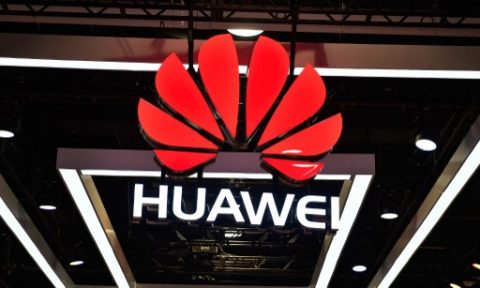
BEIJING, China (AFP) — China warned on Thursday that American protectionism was on the rise after congressional documents showed that Chinese tech giant Huawei’s designs on the US market were causing national security concerns in Washington.
Huawei, which appeared to lose a deal with AT&T that would have given it an improved foothold in the US handset market, faced criticism from US lawmakers over its intellectual property protection and its ties to Chinese intelligence, according to a letter seen by AFP this week.
The letter, signed by 18 members of the House and Senate intelligence panels, expressed concerns first voiced in 2013 by congressional investigators.
The document said that later information obtained by the panels “only reinforces our concerns regarding Huawei and Chinese espionage”.
The letter dated December 20 was sent to the US Federal Communications Commission (FCC) with copies to the Justice Department, FBI, CIA and Department of Homeland Security.
It added that the FCC should receive intelligence briefings “on the threat Huawei and other Chinese technology companies pose”.
China’s ministry of commerce hit back on Thursday, defending the proposed Huawei-AT&T link-up as “purely business”.
“We have noticed that the voice of trade protectionism is rising in the United States and gaining the upper hand,” ministry spokesman Gao Feng told a news conference in Beijing.
“I would like to stress that opposing protectionism has already become the general consensus of the international community. China firmly opposes any form of trade or investment protectionism.”
Huawei has become the world’s third largest smartphone maker but its US presence has been limited by a lack of agreements with wireless carriers, which sell most devices.
The company’s consumer business chief Richard Yu was a keynote speaker Monday at the Consumer Electronics Show in Las Vegas, where an expected announcement with AT&T failed to materialise.
Yu did not directly address the Congressional concerns but said it was a “big loss” for Huawei and consumers that it would not be selling in the US through carrier channels.
A potential agreement with another major wireless carrier, Verizon, was also in jeopardy, according to media reports.
A Huawei spokesman declined comment.
The company said in a written statement that it would release new products to US consumers as unlocked devices through retail channels, reaching a smaller market.
“At the same time, we believe that US consumers deserve equal opportunity and the choice to enjoy the best technology and more smartphone options through more channels… At Huawei, privacy and security are always our first priority,” it said.
Last week Ant Financial, an affiliate of Chinese internet titan Alibaba, had to abandon a $1.2 billion deal to buy US remittances firm MoneyGram after failing to get approval from regulators in Washington.
The decision dealt a blow to Alibaba boss Jack Ma’s push into the world’s biggest financial market.
Gao, the commerce ministry spokesman, expressed “regret” over the collapsed MoneyGram deal.
He called on Washington to help “strengthen cooperation and act in the same direction as China to create a more open, transparent and convenient” trade environment.
However, foreign businesses operating in China routinely complain of an array of market-protecting barriers, a trend that Western trade lobbies say has worsened since Chinese President Xi Jinping took power in 2012.
© Agence France-Presse







